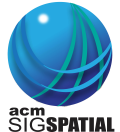Home
This year’s contest will focus on competitive spatio-temporal searching (CSTS), in which, mobile agents search for stationary resources on a road network. Each resource can be obtained by only one agent at a time. Each agent autonomously decides its own search path in an attempt to obtain a resource as quickly as possible; therefore, the search is competitive. A search problem of this nature arises in applications that are very commonplace in typical urban transportation systems such as the following:
- Crowdsourced taxicabs (mobile agents) looking for customers (stationary resources).
- Vehicles (mobile agents) looking for available parking slots (stationary resources).
- Electric cars (mobile agents) looking for available charging stations (stationary resources).
A key issue to be addressed in the CSTS problem is how agents should choose their search path such that the search time is minimized. We assume that there is a historical dataset containing records of the times and locations at which resources became available in the past, such as SFPark for parking availability and TLC for cab customer availability. From such datasets, the distribution of resources may be derived and utilized by the agents to plan their search paths. For example, the distribution can define the probability that there is at least one resource available during each time interval for each spatial zone. However, the optimal granularity to use for the time interval and spatial zone remains an open question. Furthermore, because agents plan their search paths based on the same resource distribution information, they tend to choose common paths. This can cause the “herding” effect, which then hurts the search efficiency. This year’s contest calls for solutions to these issues.
In summary, the key topics that are being addressed in this year’s contest are the following:
- Spatial Networks
- Route Planning
- Spatio-temporal Data Mining
The top three teams will be provided with cash and / or other prizes. In addition to these prizes, the top three teams will be invited to submit a four page paper for a contest paper session to be held at the 2019 ACM SIGSPATIAL GIS conference. These papers will be subject to review and acceptance by the contest organizers, but it is expected that each of the top three teams will have their paper in the conference proceedings and a ten-minute presentation in the contest session. At least one team member of each winning team must register for the 2019 ACM SIGSPATIAL GIS conference.
Important Dates
Deadline for submissions: August 5, 2019, (11:59PM PDT)Invitation of papers for best submissions: August 23, 2019, (11:59PM PDT)
Submission Deadline for invited papers: August 30, 2019, (11:59PM PDT)
Sponsors
This edition of ACM SIGSPATIAL GIS Cup is sponsored by.




